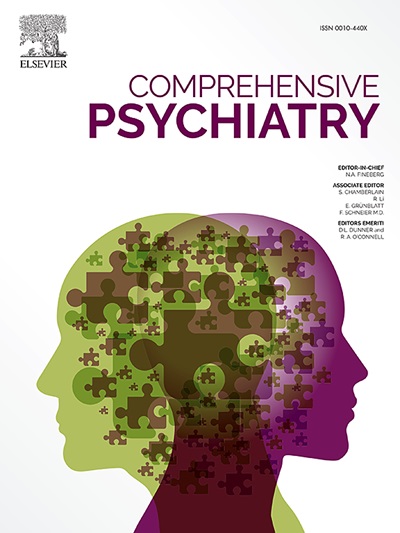主要指南:专家小组报告标准,最佳估计诊断和纵向专家所有数据(LEAD)方法
IF 4.2
2区 医学
Q1 PSYCHIATRY
引用次数: 0
摘要
对症状和疾病的准确评估对健康研究和临床实践至关重要,但面临许多挑战。目前的评估方法是由专家审查几个信息来源,以实现最佳估计评估,以解决缺乏单一的无差错措施的问题。这种评估方法在医学上被称为专家小组方法,在精神病学和心理学上被称为最佳估计诊断或纵向专家所有数据(LEAD)方法。然而,由于对评估方法的不良报告,主张的最佳估计评估的质量通常难以评估,并且当报告方法时,报告质量会发生很大变化。为了解决这一差距,我们制定了一个报告指南,遵循四个阶段的方法:1)起草报告标准,并伴有经验证据,与抑郁症患者组织一起进一步发展,2)通过两轮德尔菲程序纳入专家反馈,3)根据专家共识会议完善指南,4)通过i)让研究人员测试它,ii)将其应用于先前发表的研究来测试指南。最后一步也为指南的必要性提供了证据:在随机选择的30项已发表的研究中,10 - 63%(平均33%)的标准没有报告。结果是LEADING指南,包括四组20个报告标准:纵向设计,适当的数据,评估专家,材料和程序,以及有效性组。我们希望LEADING指南将帮助研究人员计划、实施、报告和评估旨在实现最佳估计评估的研究。本文章由计算机程序翻译,如有差异,请以英文原文为准。
The LEADING guideline: Reporting standards for expert panel, best-estimate diagnosis, and longitudinal expert all data (LEAD) methods
Accurate assessments of symptoms and illnesses are essential for health research and clinical practice but face many challenges. The absence of a single error-free measure is currently addressed by assessment methods involving experts reviewing several sources of information to achieve a best-estimate assessment. This assessment method is called the Expert Panel method in medicine, and the Best-Estimate Diagnosis or Longitudinal Expert All Data (LEAD) method in psychiatry and psychology. However, due to poor reporting of the assessment methods, the quality of pro-claimed best-estimate assessments is typically difficult to evaluate, and when the method is reported, the reporting quality varies substantially. To tackle this gap, we have developed a reporting guideline following a four-stage approach: 1) drafting reporting standards accompanied by empirical evidence, which were further developed with a patient organization for depression, 2) incorporating expert feedback through a two-round Delphi procedure, 3) refining the guideline based on an expert consensus meeting, and 4) testing the guideline by i) having researchers test it and ii) applying it to previously published studies. The last step also provides evidence for the need for the guideline: 10–63 % (Mean 33 %) of the standards were not reported across thirty randomly selected published studies. The result is the LEADING guideline comprising 20 reporting standards in four groups: the Longitudinal design, the Appropriate data, the Evaluation – experts, materials and procedures, and the Validity group. We hope that the LEADING guideline will assist researchers in planning, conducting, reporting, and evaluating research aiming to achieve best-estimate assessments.
求助全文
通过发布文献求助,成功后即可免费获取论文全文。
去求助
来源期刊

Comprehensive psychiatry
医学-精神病学
CiteScore
12.50
自引率
1.40%
发文量
64
审稿时长
29 days
期刊介绍:
"Comprehensive Psychiatry" is an open access, peer-reviewed journal dedicated to the field of psychiatry and mental health. Its primary mission is to share the latest advancements in knowledge to enhance patient care and deepen the understanding of mental illnesses. The journal is supported by a diverse team of international editors and peer reviewers, ensuring the publication of high-quality research with a strong focus on clinical relevance and the implications for psychopathology.
"Comprehensive Psychiatry" encourages authors to present their research in an accessible manner, facilitating engagement with clinicians, policymakers, and the broader public. By embracing an open access policy, the journal aims to maximize the global impact of its content, making it readily available to a wide audience and fostering scientific collaboration and public awareness beyond the traditional academic community. This approach is designed to promote a more inclusive and informed dialogue on mental health, contributing to the overall progress in the field.
 求助内容:
求助内容: 应助结果提醒方式:
应助结果提醒方式:


